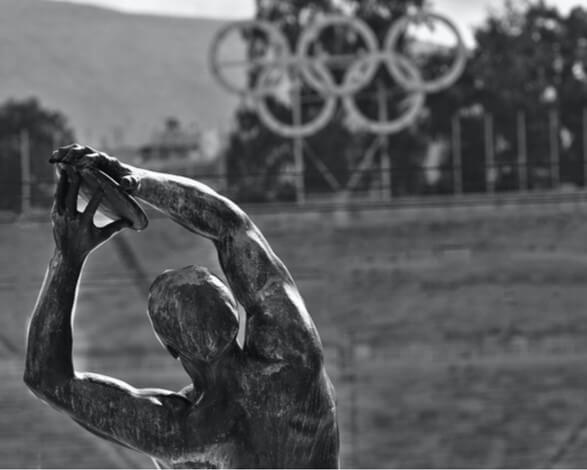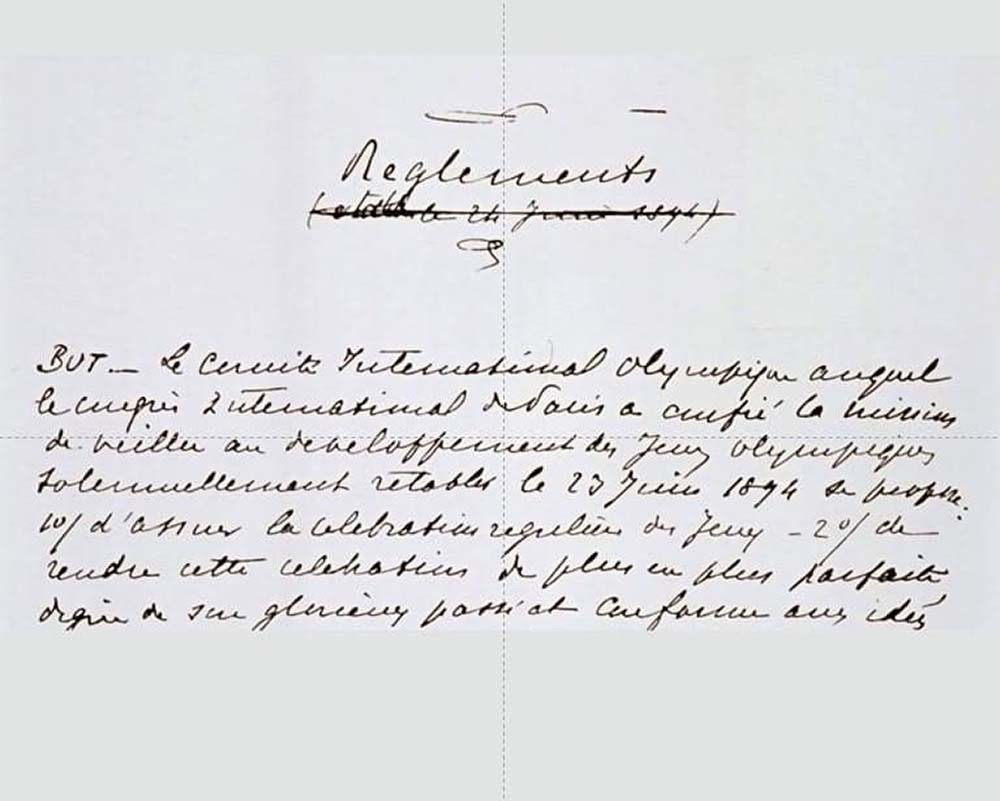Olympic Movement
20.10.2021


Gennady Marichev
Olympic Charter
Olympism is a philosophy of life. An extraordinary life — harmonious, peaceful, preserving human dignity.

-
Members of the discussion:
-
Last reply:
With Olympic Charter we will begin our conversation about the Olympic Games. To give you an idea of the Olympic Charter, I am attaching the document itself. You will be able to judge the accuracy of the wording that I use in this article.
The Olympic Charter is the main document governing the activities of the entire Olympic Tree. I didn't make a reservation: the Olympic Games are just the tip of this tree. The roots are the basic principles, then — the International Olympic Committee, its relationship with the International Sports Federations, National Olympic Committees, Organizing Committees of the Olympic Games, etc. I deliberately use simplified language.
It is unlikely that the Olympic Charter can be considered a code of law that strictly regulates everything and everyone in the Olympic movement, but almost everything is for sure.
Unfortunately, no one has been noticed in studies of the history of creation, the evolution of the Olympic Charter. Therefore, I will refer to the article "Olympic Charter" from my Olympic Encyclopedia (see Volume 1, pp. 61-63), in which I have tried to at least summarize the available information about the Olympic Charter.
I had to revise hundreds of documents. But for a future analyst, a person who dares to make a serious analysis without complimentary expressions, the information in the article will be extremely useful.
So the Olympic Charter. Why the Charter, and not the Law, for example.
If only because the Olympic Charter is an international legal act, more precisely, an agreement concluded in writing with the aim of implementing the basic principles of Olympism. The very word Charter means a sheet of paper, or a book written on paper. Requirements for certain rights must be expressed in this book.
The proposal to create a document unifying the rules governing the activities of both the International Olympic Committee and the Olympic Games was made at the 7th session of the International Olympic Committee. It happened in Athens in 1906, during the celebration of the tenth anniversary of the Olympic Games. However, much of what later became the Olympic Charter was developed by Pierre de Coubertin, the man who revived the Olympics back in 1898.

For a long time, the Olympic Charter was published under a wide variety of names. The basic principles brochures were originally titled Comite International Olympique Annuaire, Olympic Rules, Rules and Regulations. Beginning in 1978, the final title appeared on the covers — Olympic Charter.
Yes, you can argue and argue that the words Olympic Charter have been used since 1894. And you will be right. But I'm talking about the formal part of the question.
Everything that makes up the Olympic movement, and this, by the way, the Olympic Games, is based on the philosophy of Olympism.
In point 4 of the Fundamental Principles of Olympism, the attitude towards sports is concretized. That is, the authors of the document are already talking not about abstractions, but a very specific application, I will once again emphasize the "Fundamental Principles of Olympism".

In 1908, the proposal was implemented. An Olympic Charter titled Comite International Olympique Annuaire has been published.
For a long time, the Olympic Charter was published under a wide variety of names. The basic principles brochures were originally titled Comite International Olympique Annuaire, Olympic Rules, Rules and Regulations. Beginning in 1978, the final title appeared on the covers — Olympic Charter.
Yes, you can argue and argue that the words Olympic Charter have been used since 1894. And you will be right. But I'm talking about the formal part of the question.
The structure of the Olympic Charter is simple — several main sections governing the principles of Olympism, the composition and organization of the Olympic movement, etc. Familiarization with the attached text will allow you to familiarize yourself in detail with all sections, chapters, rules and additions to them.
We should be most interested in the very beginning of the Olympic Charter. Please note: I am using Olympic Charter in Force as from July 17, 2020.
Everything that makes up the Olympic movement, and this, by the way, the Olympic Games, is based on the philosophy of Olympism.
Olympism is a philosophy of life. An extraordinary life — harmonious, peaceful, preserving human dignity.
In point 4 of the Fundamental Principles of Olympism, the attitude towards sports is concretized. That is, the authors of the document are already talking not about abstractions, but a very specific application, I will once again emphasize the "Fundamental Principles of Olympism".
It is no longer possible to avoid quoting here. Moreover, every time, at any official (and unofficial event), not only of Olympic organizations, but of organizations in general, this principle is declared when talking about the Olympic movement.
"The practice of sport is a human right. Every individual must have the possibility of practicing sport, without discrimination of any kind and in the Olympic spirit, which requires mutual understanding with a spirit of friendship, solidarity and fair play."(Olympic Charter)
True, very cool!
But any more or less thinking person immediately sees the destroyed cities of Yugoslavia, hundreds of disqualified athletes from Russia and other countries. If in the first example harmonious, peaceful development is completely crossed out, then in the second — the right to go in for sports, the absence of discrimination on any grounds.
One might argue, what does the Olympic movement have to do with the destroyed cities of Yugoslavia, or the genocide in Rwanda?
One might argue, what does the Olympic movement have to do with the destroyed cities of Yugoslavia, or the genocide in Rwanda?
In my lectures I will explain this to you more specifically. In the meantime, I will say: the Olympic movement in the fundamental principles of Olympism did not note, speaking of universal harmony, any specific nuances. So they would write: harmonious, peaceful, etc. development, unless otherwise specified.
What to do with the right to go in for sports, non-discrimination, if sports institutions are only doing that which deprives a certain part of athletes, potential Olympians, from going in for sports. I am not even talking about inequality and other negative nuances.
Again, gentlemen, change the text. Write differently: Playing sports is the right of only a certain part of society. Discrimination in sports, the manifestation of nationalism, the use of the law of the strong, the creation of conditions for unhealthy competition, the spirit of money-grubbing and foul play should be the main principles of Olympism. Or will it no longer be called olypisms!?
I would like to hear your answers.
Discussion
More on the topic
The Origins of the Olympic Rings
Replies:
